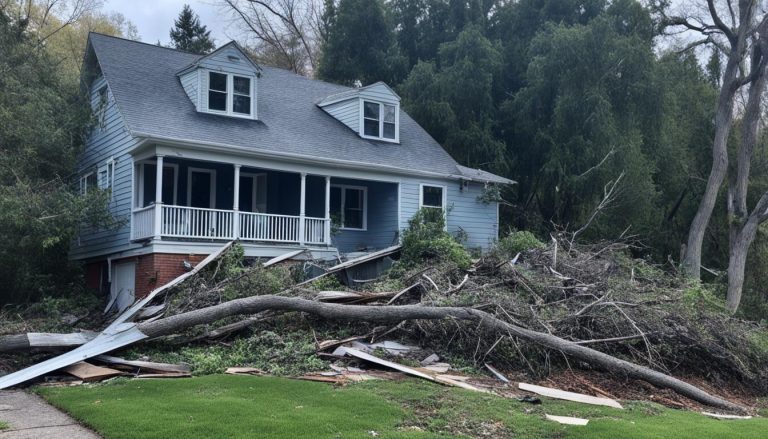The term “next of kin” is often used in everyday conversations, particularly when dealing with medical, legal, or inheritance matters. However, the full legal meaning of next of kin can be misunderstood, especially when it comes to property and estate issues.
Being a next of kin doesn’t just involve being a close family member; it can also entail responsibilities related to inheritance, managing property, and even making decisions about a loved one’s estate after they pass away.
Understanding what being a next of kin truly means, especially in terms of property and estate management, is crucial for anyone planning their affairs or involved in the administration of an estate.
What is Next of Kin? – Meaning and Legal Definition

In the UK, the term “next of kin” refers to a person’s closest living relative, who is often considered the first point of contact in medical emergencies or other situations where decisions must be made on behalf of someone who is incapacitated or has passed away.
Although next of kin is usually thought of as a spouse, child, or parent, it can legally be any individual nominated by the person concerned, regardless of blood relation. For property matters, this designation becomes even more crucial when there’s no will to guide how assets should be distributed.
Legally, the next of kin does not have automatic rights over property or financial affairs unless appointed as an executor or administrator of the estate. When there is a will, the executor is usually responsible for carrying out the wishes of the deceased.
If there is no will, the next of kin may apply to become the administrator, gaining authority to manage the estate under the rules of intestacy.
Who is the Next of Kin? – Legal Order
When someone dies without a will, the law follows a specific hierarchy to determine who inherits the estate. This hierarchy, known as the legal order of next of kin, is established to ensure that a clear process is followed for distributing the deceased person’s assets.
- Spouse or Civil Partner: The first person considered next of kin is the spouse or civil partner. They have priority when it comes to inheritance and decisions about property.
- Children: If the individual is not married or in a civil partnership, the next of kin is usually their children. This includes both biological and legally adopted children.
- Parents: If there are no children, the parents of the deceased are next in line.
- Siblings: If none of the above relatives are alive or available, siblings are considered the next of kin.
- Other Relatives: If no closer relatives exist, extended family members such as grandparents, aunts, uncles, and cousins may be considered.
The legal order of next of kin is significant in determining who inherits the deceased’s estate when there is no will, and it can also influence decisions such as funeral arrangements or medical care. The intestacy rules are designed to ensure that a person’s closest relatives are prioritized when it comes to distributing their assets.
Rights and Responsibilities of a Next of Kin in Property Matters

The role of a next of kin in property matters can be significant, especially when a loved one passes away. While the term “next of kin” often refers to a person’s closest living relative, their rights and responsibilities concerning property are more complex and legally bound by specific processes.
Below is an outline of the main rights and responsibilities next of kin hold in relation to property management and estate affairs.
1. Right to Apply for Probate
When an individual dies, the next of kin may have the right to apply for probate if no will is in place. Probate is the legal process that authorizes someone to manage the deceased person’s estate, including property, assets, and financial affairs.
In the absence of a will, the next of kin can apply to become the administrator of the estate. Once granted, they have the legal authority to:
- Access and manage the deceased’s property.
- Pay off any outstanding debts, including mortgages or property taxes.
- Distribute the remaining property and assets to rightful beneficiaries based on intestacy laws.
2. Managing Property and Estate Distribution
If the next of kin is granted probate or letters of administration, they have a legal duty to manage and oversee the deceased’s property. This responsibility includes:
- Assessing the Value of the Estate: The next of kin or administrator must determine the total value of the estate, including any real property like houses, land, or commercial property.
- Handling Debts and Expenses: Before distributing assets, the next of kin must use the estate to pay off any remaining debts, including mortgages, loans, or other liabilities. Funeral expenses are also paid from the estate before distribution to beneficiaries.
- Distributing the Property: Once debts are settled, the next of kin ensures the estate is distributed according to either the will (if available) or the intestacy laws, which determine who inherits what based on the family hierarchy.
3. Property Maintenance
While managing the deceased’s property, the next of kin is responsible for ensuring that the property is properly maintained during the probate process. This includes making sure that any mortgages are paid, utilities are managed, and necessary repairs are completed to avoid a decline in property value.
4. No Automatic Ownership Rights
It’s crucial to understand that being named the next of kin does not grant automatic ownership of the deceased’s property. Without a valid will, property ownership is governed by intestacy rules. Under these rules:
- The surviving spouse or civil partner often has the first right to inherit the property.
- If there is no spouse or civil partner, children (including adopted children) may inherit.
- If there are no children, other relatives, such as parents or siblings, may be entitled to the property.
5. Restrictions on Bank Accounts and Financial Access
The next of kin cannot withdraw funds or access the deceased’s bank accounts without legal permission. Even if named as next of kin, financial institutions will freeze the accounts until probate or administration has been granted.
This means that the next of kin has no legal authority to use the deceased’s money until they have been appointed executor or administrator.
6. Decision-Making on Funeral and Property Sale
While next of kin often handle funeral arrangements, they are not legally obligated to pay for them out of pocket. Funeral expenses are typically covered by the estate.
Furthermore, in cases where the deceased’s property must be sold to settle debts or distribute assets, the next of kin (or executor/administrator) oversees this process.
They must ensure that the sale is carried out properly, following all legal guidelines, and that proceeds are appropriately allocated to cover debts and beneficiaries.
7. Conflicts and Disputes Over Property
Disputes can sometimes arise among family members, especially when there is no will. In such cases, the next of kin may find themselves involved in legal challenges or conflicts over how the property is divided.
To avoid such disputes, it is always advisable for individuals to create a clear, legally-binding will that outlines their wishes regarding property distribution.
Can Next of Kin Withdraw Money from a Deceased’s Bank Account?
Many people believe that next of kin can automatically access the bank accounts of a deceased relative, but this is not the case. The next of kin does not have the right to withdraw money from the deceased’s bank accounts unless they have legal authority through probate.
Even if the deceased named them as the next of kin, bank accounts remain frozen until the probate process is completed.
In cases where the deceased left a will, the executor has the authority to access and distribute the funds according to the will’s instructions. If there is no will, the next of kin can apply to become the administrator, but they still need to obtain probate to handle the financial affairs.
Is the Next of Kin Responsible for Funeral Costs in the UK?

Funeral costs are often a concern for next of kin, but in the UK, they are typically covered by the deceased’s estate. If the estate has sufficient funds, these costs are paid before any other debts or distributions to heirs are made.
However, if the estate does not have enough funds to cover the funeral, the next of kin may need to step in to cover the expenses. That said, the next of kin is not legally obliged to pay for the funeral unless they have entered into a formal agreement with a funeral director or have personally accepted responsibility for these costs.
What Happens When There Is No Will? – Intestate Succession
When an individual dies without a will, their estate is distributed according to the rules of intestacy. These rules prioritize the legal next of kin based on the established hierarchy, ensuring that the closest relatives inherit the estate.
In the absence of a spouse or civil partner, children are the first to inherit. If there are no children, the estate passes to the parents, and if they are not alive, siblings and other close relatives inherit.
The intestacy rules can lead to unintended consequences, particularly for unmarried couples or distant relatives who may not have been the deceased’s preferred beneficiaries. To avoid complications, it is always advisable to create a will that clearly outlines who should inherit your property and assets.
How to Change Next of Kin?

Changing your next of kin is relatively straightforward and can vary depending on the context, such as medical records, legal documents, or other specific circumstances. Here’s how you can change your next of kin in different situations:
1. For Medical Records
In the UK, your next of kin is often listed in your medical records. If you need to change it, follow these steps:
- Contact Your GP or Healthcare Provider: You can notify your GP or the hospital of the change. They will update your next of kin details in their system.
- Provide Updated Information: Ensure you provide the full name, relationship, and contact details of the person you want to be your new next of kin.
- No Legal Formalities: Unlike legal documents, changing the next of kin in medical records does not usually require a formal legal process. You can simply inform your healthcare provider of the update.
2. For Legal Documents (e.g., Wills)
If you want to change your next of kin as it relates to inheritance or estate matters, you may need to update legal documents such as:
- Update Your Will: To ensure the new person is responsible for managing your estate or inheriting assets, you need to update or create a new will. This requires consulting a solicitor to formally change the executor or beneficiaries.
- Amend Powers of Attorney: If your next of kin is also your legal representative through a Power of Attorney, you will need to revoke the existing one and appoint a new attorney. This must be done through official documents with the help of a solicitor.
3. For Employment or Emergency Contacts
If your workplace has your next of kin details for emergency purposes, you can update them directly:
- Contact Your HR Department: Most employers will allow you to update your next of kin details by notifying your human resources department.
- Provide Updated Information: Ensure they have the correct contact details for your new next of kin.
4. For School or Childcare Registrations
If you’re changing your next of kin for a child’s school or childcare records:
- Update the School Administration: Contact the school or childcare provider and inform them of the change.
- Provide Necessary Forms: Some schools may require you to fill out a form with updated next of kin details, including emergency contacts.
Things to Consider:
- Ensure All Records Are Updated: Make sure that any relevant organisations—such as your healthcare provider, employer, or solicitor—have the updated information.
- Legal Documents May Require Formal Steps: While updating your next of kin in informal settings (like medical records) can be as simple as notifying relevant parties, legal documents often require formal procedures like re-drafting a will or revoking powers of attorney.
By updating the appropriate documents and notifying the right parties, you can easily change your next of kin based on your current preferences.
Can You Have More Than One Next of Kin?
Yes, it is possible to name more than one next of kin, especially in situations where multiple relatives may need to be involved in decision-making. For example, some people may list both their spouse and their children as next of kin.
However, for legal purposes, such as the distribution of property, having more than one next of kin can complicate matters. It is essential to be clear about who holds responsibility for different aspects of estate management.
What Happens if You’re Not Married? – Who Becomes the Next of Kin?
If you are not married or in a civil partnership, the law does not automatically recognize your partner as your next of kin. Instead, your legal next of kin would be your children, parents, or siblings.
This can create significant complications for unmarried couples, particularly when it comes to property matters and inheritance. To ensure that your partner is recognized as your next of kin, it is important to draft a will or assign them as your power of attorney.
Bereavement Payment for Next of Kin in the UK
In the UK, certain next of kin, such as a spouse or civil partner, may be eligible for bereavement payments following the death of a loved one. These payments, such as the Bereavement Support Payment, are designed to help provide financial support during a difficult time.
Eligibility depends on factors such as the deceased’s National Insurance contributions, and the next of kin can apply through government channels.
Power of Attorney and Next of Kin in Property Management
Next of kin does not have automatic authority to manage someone’s property or financial affairs. This is where power of attorney comes into play. A lasting power of attorney is a legal document that grants someone the authority to make decisions on your behalf if you become incapacitated.
By appointing a power of attorney, you ensure that someone you trust can handle your property, finances, and other important matters without relying on the next of kin designation alone.
Common Disputes Involving Next of Kin and Property Matters

Common disputes involving next of kin and property matters typically arise during emotionally charged periods, such as after a death or during the division of an estate.
These conflicts can become complex when legal processes are involved, especially in the absence of clear documentation like a will. Here are some of the most common disputes:
1. Inheritance Disputes
One of the primary sources of conflict among next of kin is the distribution of property and assets after a family member’s death. These disputes often occur when:
- No Will (Intestacy): When someone dies without a will, their estate is distributed according to intestacy rules, which may not reflect the deceased’s wishes. This can lead to disagreements, especially if distant relatives or non-immediate family members feel entitled to a portion of the estate.
- Perceived Unfair Distribution: Even when a will exists, family members may feel the distribution of assets is unfair. For instance, one child may receive more property than another, leading to feelings of favoritism or injustice.
- Challenging the Will: Next of kin may dispute the validity of a will, claiming that it was made under undue influence, fraud, or while the deceased was not of sound mind. This leads to legal battles to determine the legitimacy of the will.
2. Rights Over Property
Disagreements often arise over who has the right to manage or claim ownership of the deceased’s property. Common scenarios include:
- Jointly Owned Property: If the deceased owned property jointly with another person (such as a spouse or civil partner), disputes may arise over whether the property automatically passes to the co-owner or whether it should be part of the estate and distributed among next of kin.
- Right to Live in the Family Home: If the deceased owned the family home, disputes may occur if one next of kin wants to continue living there, while others want to sell the property to divide the proceeds.
3. Funeral Arrangements
Funeral-related disputes can occur if there are conflicting opinions on how the deceased should be laid to rest. The next of kin is usually responsible for making funeral arrangements, but disagreements often arise over:
- Funeral Expenses: If the estate cannot cover funeral costs, conflicts can emerge over who should pay for the funeral.
- Cultural or Religious Differences: Next of kin may have different views on how the deceased should be buried, including religious rites, cremation versus burial, or other ceremonial aspects.
4. Debts and Liabilities
Conflicts can arise when next of kin are faced with the deceased’s outstanding debts or liabilities. In most cases, the estate is responsible for paying off debts before assets are distributed. However, disputes may occur if:
- The Estate is Insufficient: When the estate doesn’t have enough funds to cover debts, creditors may pursue next of kin, which can cause disputes over who is responsible for settling these liabilities.
- Co-signed Debts or Loans: If next of kin co-signed on loans or debts with the deceased, they may be legally responsible for paying them, leading to financial strain and potential conflicts within the family.
5. Executor vs. Beneficiary Disputes
The role of executor comes with significant power and responsibility, and conflicts often arise between executors and beneficiaries. Common areas of dispute include:
- Mismanagement of Estate: Beneficiaries may accuse the executor of mismanaging the estate, such as undervaluing property, taking too long to distribute assets, or making unauthorized decisions.
- Executor Compensation: Disagreements can arise over whether the executor is entitled to compensation for their work, particularly if the compensation is seen as excessive by the beneficiaries.
6. Disputes Among Multiple Next of Kin
When there are multiple next of kin involved, such as siblings or extended family members, disputes often arise over who should have the authority to make decisions regarding property, finances, or medical care. These conflicts can include:
- Disagreement Over Sale of Property: One next of kin may want to sell the property, while another may wish to keep it, leading to disputes over how to proceed.
- Power of Attorney and Decision-Making: Conflicts can occur over who has the legal right to make decisions if the deceased did not leave a clear power of attorney.
7. Cohabiting Partners and Next of Kin Status
In cases where the deceased had a long-term cohabiting partner but was not married or in a civil partnership, disputes can arise over whether the partner has any legal right to the property.
Without a will, the intestacy rules do not automatically recognize cohabiting partners, which can lead to legal battles between the partner and other next of kin, such as children or siblings.
Resolving Next of Kin Disputes
- Mediation: To avoid prolonged court battles, family members may turn to mediation, where a neutral third party helps them reach a resolution.
- Legal Recourse: In some cases, disputes must be resolved through the legal system, especially if the will is contested or there are complex issues involving ownership and inheritance laws.
- Estate Planning: The best way to prevent next of kin disputes is to create a comprehensive estate plan, including a valid will, clear instructions for funeral arrangements, and, if needed, a power of attorney.
Understanding the potential areas for conflict and taking steps to plan ahead can help mitigate many of these disputes. Having clear legal documentation, including a will, and communicating your wishes with your next of kin can reduce misunderstandings and prevent future conflict.
How to Avoid Next of Kin Disputes in Property Matters?
To avoid potential disputes among next of kin, it is crucial to plan ahead by creating a comprehensive will and setting up a lasting power of attorney. These legal documents ensure that your wishes are followed and reduce the risk of disagreements among family members.
Clearly communicating your decisions to your next of kin and other loved ones can also help prevent confusion and conflict.
Conclusion
In conclusion, while the next of kin holds an important role, especially in property and estate matters, it’s essential to understand the limits of this position. Next of kin do not automatically have the right to manage property or financial affairs without the proper legal processes in place, such as probate or power of attorney.
By planning ahead and ensuring that your next of kin understands their responsibilities, you can protect your assets and avoid potential legal conflicts.
FAQs About Next of Kin
Who is considered next of kin in UK law?
In the UK, the legal next of kin is typically the spouse or civil partner, followed by children, parents, and siblings. This hierarchy ensures that the closest living relatives are prioritized when making important decisions or managing an estate.
Can next of kin access a deceased person’s bank account?
No, the next of kin cannot access the deceased’s bank accounts without first obtaining legal authority through probate. Even if they are named as the next of kin, banks will freeze accounts until the necessary legal documentation is in place.
Is next of kin responsible for unpaid debts?
The next of kin is not personally responsible for the deceased’s unpaid debts. Instead, any outstanding debts are paid from the deceased’s estate before the remaining assets are distributed to heirs. If the estate does not have enough funds, the debts may go unpaid, but next of kin are not liable.
What rights does next of kin have regarding property matters?
The next of kin has no automatic legal rights to manage or inherit property unless they are appointed as the executor in a will or have obtained probate as the administrator of the estate. Legal processes must be followed to ensure that property is distributed according to the law.
How does intestate succession work?
If someone dies without a will, their estate is distributed according to the rules of intestacy. These rules follow the legal order of next of kin, starting with the spouse or civil partner, then children, parents, and siblings. Without a will, this legal hierarchy governs who inherits the deceased’s assets.
Can you have more than one next of kin?
Yes, it’s possible to list more than one next of kin, especially for medical decisions or emergency contacts. However, when it comes to legal matters like inheritance and estate management, it’s important to clearly designate who is responsible to avoid complications.
How do you change the next of kin?
You can update your next of kin by revising your legal documents, such as a will or power of attorney, and notifying relevant institutions, such as hospitals or your GP. It’s important to keep these records current to ensure your wishes are followed.






